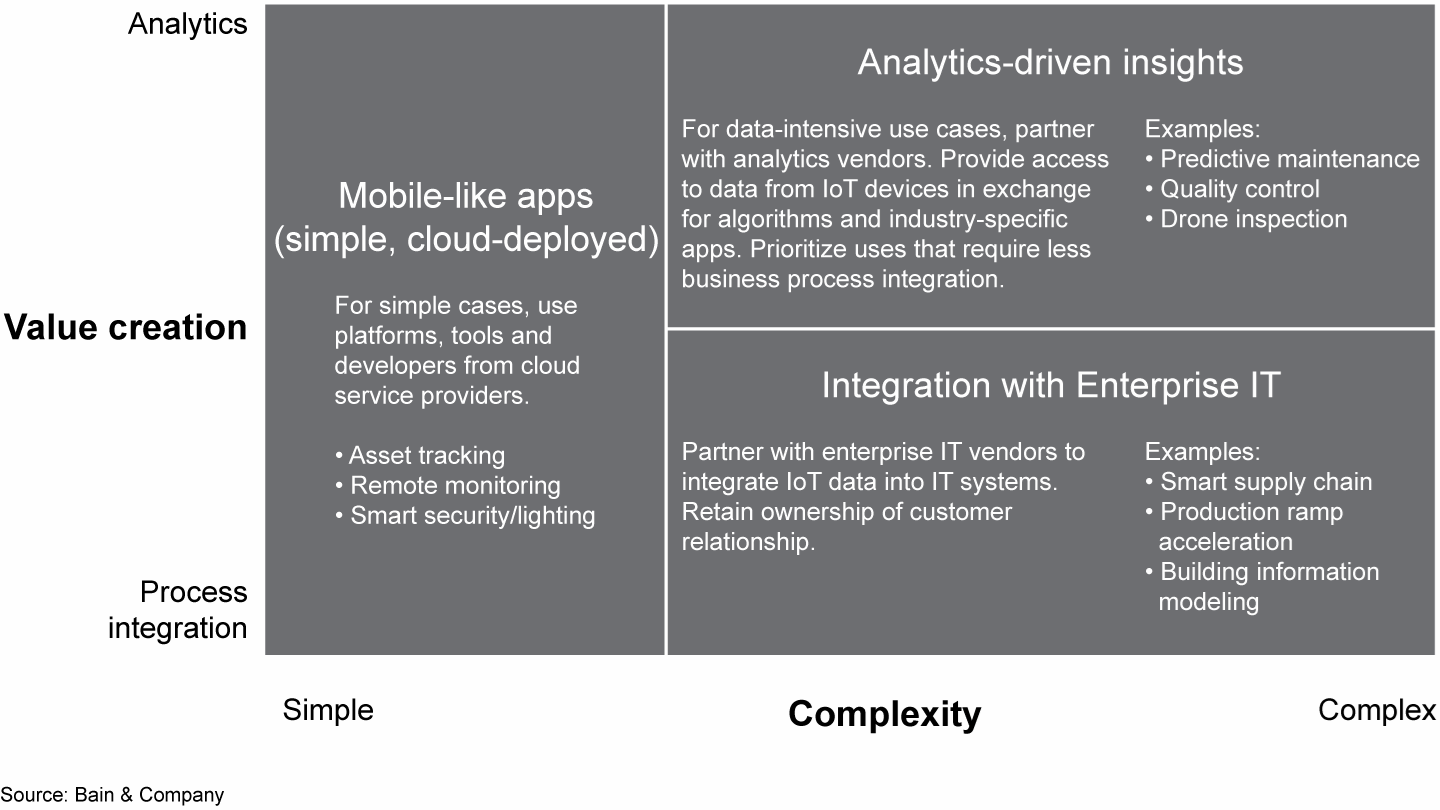Article

GE’s decision to sell key parts of its digital unit is the clearest sign yet that industrial companies are finding it more difficult to scale up their Industrial Internet of Things businesses than they had expected.
As GE and other industrial giants like Siemens and Bosch move from the equipment layer up into software and analytics, they have been building platforms that they hope will become standard software platforms for industrial systems—similar to Windows on PCs. In contrast to IoT platforms coming out of software vendors or cloud service providers, these industrial platforms have their roots in industrial systems built for mission-critical systems that pose significant risks. They have real-time capabilities and safe modes built in from the start.
GE was an early entrant in the race to build a platform for the industrial IoT, and was certainly one of the most prominent and promising platform providers. They announced their Predix platform early on, grabbing the attention of customers and partners. Many competitors rushed to follow with their own IoT platforms. As a first mover, GE Predix attracted a large developer footprint among industrial vendors. Despite these early successes, it appears they have stumbled on some common pitfalls, which we identified in our 2016 brief “How Providers Can Succeed in the Internet of Things.” GE’s industrial expertise was a strong selling point, but it may have reached too broadly, deploying more than 100 proofs of concept across at least eight different industry verticals. This diffuse focus diluted its expertise in any single domain, limiting its ability to climb the learning curve and turn proofs of concept into scalable IoT products.
GE’s experience is the most visible example of a problem faced by all of the major industrial manufacturers as they struggle to move from IoT proofs of concept to scale implementations that will deliver sustainable revenues. Industrial and operational technology vendors have been seen as critical to developing the Industrial IoT due to their domain expertise, customer relationships and ability to integrate new IoT products and services with operational technology systems.
Partnerships are also key, since they provide ways for industrial vendors to access capabilities such as software development, analytics and system integration that are often not part of their offering (see Figure 1).
Select partners based on source of value creation and complexity of the product or solution


Without those key partnerships, IoT vendors are having trouble developing and selling solutions that integrate smoothly with customers’ businesses and processes. These vendors could improve their record by focusing on fewer industries, developing deeper expertise and choosing industrial partners who can contribute domain knowledge to the solution. That would help them develop more comprehensive end-to-end solutions that play nicely with customers’ current systems.
In addition to integration concerns, customers also remain wary of security threats. Bain research finds that security still weighs heavily on the minds of enterprise customers. Our recent survey found they would buy more IoT devices and pay more for them (about 22% more on average) if their security concerns were addressed.
Michael Schallehn, a partner with Bain's Technology practice, describes the two things that industrial IoT vendors can do to make transitions effective.
The race for leadership in the Industrial IoT is heating up as the cloud service providers Amazon Web Services and Microsoft Azure expand their generic offerings into industry-specific solutions. It’s still possible for software vendors and industrial companies to win in their chosen arena. But to do that, they will need to focus on the right industry use cases, develop the critical partnerships that can deliver end-to-end solutions and improve the security of their solutions.
Ann Bosche, Michael Schallehn and Christopher Schorling are partners with Bain & Company in San Francisco, Silicon Valley and Frankfurt, respectively. All three work with Bain's Global Technology practice.